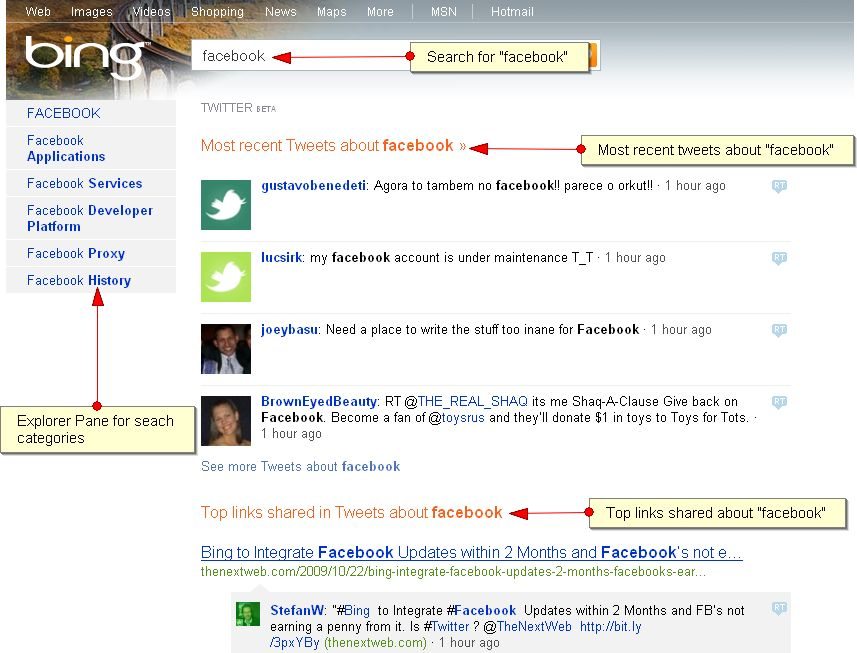Yesterday afternoon when I first checked out Bing’s Twitter Search feature, I was actually quite impressed. Staying true to its “decision engine” layout, the tweet results are broken up into categories. Check it out:

I really like how it separates the results into “Most Recent Tweets” and “Top Shared Links”. The focus is definitely on user experience here, helping people find what they need with a logical and appealing interface.
And if all this wasn’t enough excitement for one afternoon, news also broke that Bing will be integrating Facebook status updates into their search results as well (within the next two months). Well played, Bing. Since you can’t beat Google at the search game, this is a great way to differentiate yourself and be part of the social-media-real-time-search explosion.
Oh, wait.
Just hours after Bing’s big Twitter release, Google announced their very own deal with Twitter to incorporate Twitter’s real-time observations directly into the SERPs.
Google hasn’t been turning a blind eye to the relevance of social networks. In a surprise announcement at the Web 2.0 summit yesterday, Google also unveiled a Google Labs feature called Social Search. A quick demo showed that the bottom of the search results pages will include social networking information from your friends (connected via your Google Profile). Social Search will be released in the next few weeks.
For me, these announcements aren’t about a competition between Google and Bing; it’s further validation of the real-time search movement. Not only is web search about finding the most relevant information for your search query, it’s about receiving news, information, and observations as they are happening. Bing and Google are making it easier for people to get the best of both worlds and proving that traditional search and real-time search can live harmoniously on the same page.
Personally, I’m all for it.





